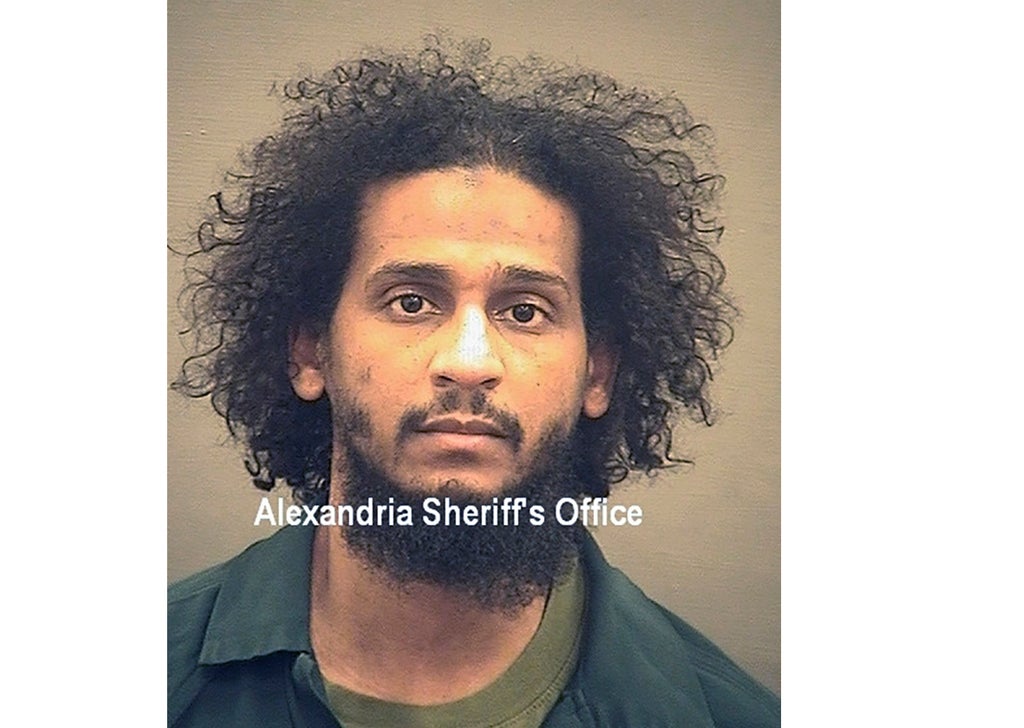
It matters not whether El Shafee Elsheikh was the Beatle dubbed “George” or the Beatle nicknamed “Ringo,” prosecutors told a jury Wednesday. What matters is that he was one of three British men in the Islamic State group who orchestrated a hostage-taking scheme that left four Americans dead.
“The Beatles were the lifeblood of the hostage conspiracy,” First Assistant U.S. Attorney Raj Parekh told jurors Wednesday during closing arguments at Elsheikh's terrorism trial in Alexandria.
Elsheikh is charged with hostage-taking resulting in death and other crimes, in what prosecutors say was a conspiracy that resulted in the capture of roughly two dozen Westerners between 2012 and 2015. It was during that time period that the terrorist group controlled large swaths of Iraq and Syria and was at the height of its power.
Four Americans — journalists James Foley and Steven Sotloff and aid workers Peter Kassig and Kayla Mueller — were among the hostages. Foley, Sotloff and Kassig were killed by decapitation; gruesome videos broadcast their executions to the world. Mueller was forced into slavery and raped repeatedly by the Islamic State’s leader, Abu Bakr al-Baghdadi, before she was killed.
Prosecutors say Elsheikh was one of three captors dubbed “the Beatles” by the hostages because of their distinct British accents.
Parekh said the most obvious evidence of Elsheikh's guilt is his own confessions, given to government interrogators and journalists. While Elsheikh never admitted to being “Ringo" — the identity prosecutors suggested belongs to Elsheikh in the trial's opening statements — he admitted to conducting tasks in the hostage scheme such as securing emails of hostages' family members for ransom negotiations.
Those admissions are enough to establish Elsheikh's guilt, according to prosecutors. But Parekh said Elsheikh and the other Beatles were far more than paper-pushing functionaries. Surviving hostages testified that all three Beatles stood out for their brutality: They said the captors forced hostages to fight each other and routinely beat them for failing to follow arbitrary rules of their captivity. Hostages reacted with dread when the Beatles returned to their prison site after an extended absence.
Survivors identified their captors as “John,” “George” and “Ringo.” But because the three always wore masks and took pains to keep their identities hidden, none of the hostages who took the witness stand during the trial could identify him as a Beatle.
Parekh told jurors the only thing they need to know is that Elsheikh was one of the Beatles, because, he said, all three were guilty in the conspiracy.
The only witness who did identify Elsheikh was Omer Kuzu, a former Islamic State member who pleaded guilty to terrorism charges in Texas and is serving a 20-year prison sentence.
He testified that Elsheikh carried a Glock handgun, a symbol of his status in the IS "aristocracy.”
Defense attorney Nina Ginsberg said Kuzu's credibility is weak, because he stands to receive time off his sentence for testifying. She said the failure of hostages to identify Elsheikh is significant.
Ginsberg also argued that Elsheikh only confessed to avoid a transfer to Iraq, where he possibly faced execution. She said the confessions came after he had spent nearly a year in the custody of the Syrian Defense Forces.
Ginsberg admitted that Elsheikh joined the Islamic State as a fighter, and that he could be found guilty on one of eight counts: providing material support to a terrorist group. But she said his role in the hostage scheme was unproven.
“As hard as the government tried, It did not prove that Mr. Elsheikh was one of the Beatles,” Ginsberg said.
Prior to Elsheikh's trial, public discussion centered on four “Beatles:" Elsheikh, his friends Alexenda Kotey, and Mohammed Emwazi, who frequently carried out the role of executioner and was known as “Jihadi John.”
The fourth, Aine Davis, who is serving a prison sentence in Turkey, came up only in passing during the trial.
Emwazi was killed in a drone strike, and Kotey was captured alongside Elsheikh and also brought to Virginia to face trial. Kotey pleaded guilty last year in a plea bargain that calls for a life sentence.







